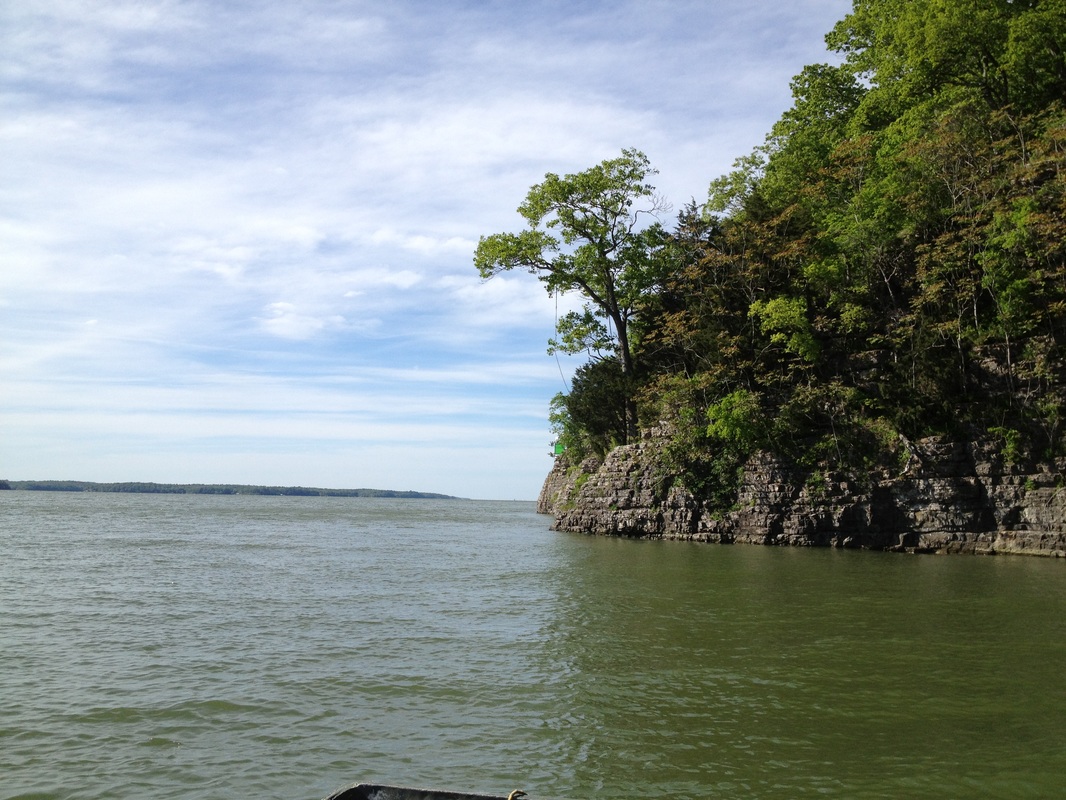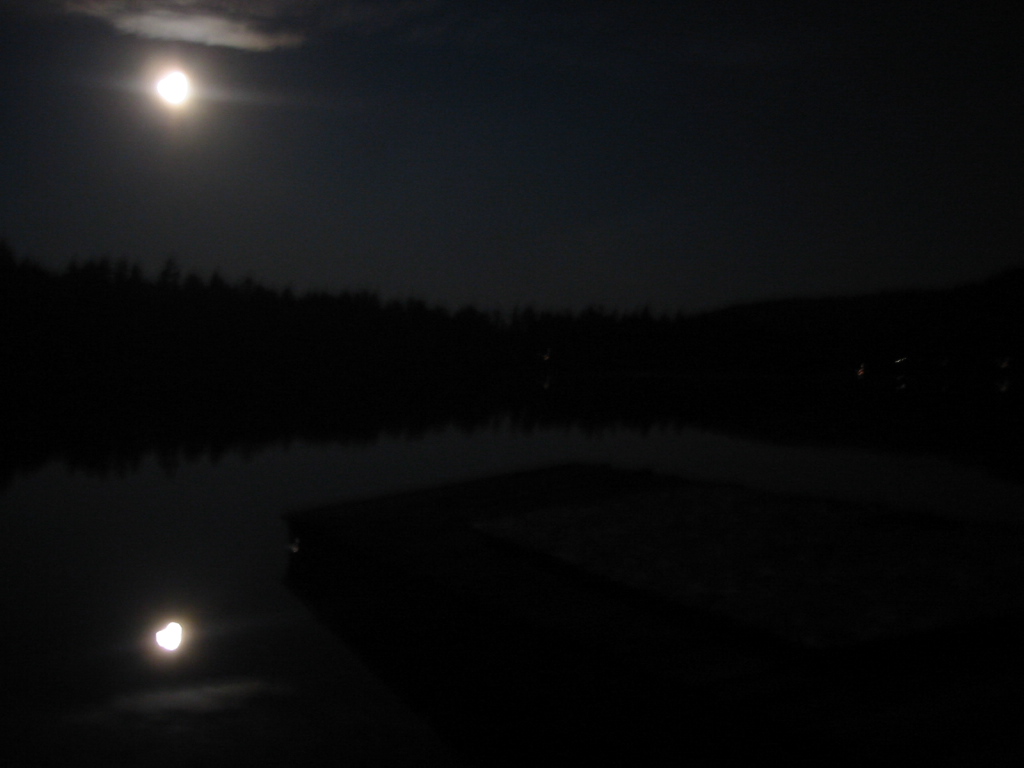I was diving just a couple of miles south of the state line the other day in LBL (Land Between the Lakes) and started thinking about the old days. Back in the 80's and 90's, when the market for shells was at it's peak, many divers went across the state line to dig illegal shells. I won't mention the name of the state, but it borders Tennessee to the north and starts with a K and ends with a Y. I'll just call it KY. For whatever reason, it has always been illegal to dive for mussels in KY. The only way to legally harvest mussels in that state was by brailing which consists of dragging special hooks along the bottom of the lake and catching the feeding mussels by chance (more about brailing can be found on my History page). This has never made sense to me because dragging the big wooden bars with chains and hooks along the lake bottom destroyed fish habitat, muddied the water and killed most of the undersized shells that were caught and thrown back. Divers do none of these things and are actually good for the shell beds as we take out the larger shells so the smaller ones can grow and multiply. Many arguments to this effect were made at wildlife meetings, but the powers that be at KY Game and Fish stuck firm with their decision: NO DIVING!
I first heard about people diving and toe-digging in KY in the early 80's when my father began buying shells for Tennessee Shell. In those days, the only thing game wardens would do is give out a ticket for $57.50, they often told divers to 'come on back as long as you keep your fines paid'. But as prices increased on the shells and more people began outlaw diving, the fines and consequences became much stiffer. By the 90's game wardens would confiscate boats and take the divers to jail and it would end up costing thousands of dollars. But this was not enough to stop some divers. While the average diver in Tennessee was earning between $200 & $400 per day, in KY they could make ten times that amount.
Besides the risk of hefty fines and jail time, outlaw diving was exponentially more dangerous than diving legally. It was almost always done at night with no running lights or lights of any kind. Divers usually used junky old 'throw-away' boats so it wouldn't hurt as much to lose them, but they were less dependable. Often the outlaw divers would put the fastest motors they could find on these battered old boats so they could possibly outrun the game wardens if need be. You can imagine how dangerous a high-speed boat chase would be at night with no lights. I know one diver who was killed during one of these chases; his boat collided with a channel marker at about 60 mph, breaking his neck. Even the danger was not enough to deter some divers and I will admit that I was one of those outlaws for several years.
It's been about 12 years since I've done any illegal musseling, but for awhile I dove all over KY Lake and in several rivers in more than one state. Sometimes I dove alone, sometimes my brother Bruce was my dive partner. We made a LOT of money and I'm not even going to estimate that on here. But since we eventually got caught, lost equipment, paid fines and did a little jail-time, I don't see any reason not to talk about some of those adventures. We did some crazy things, many that defy belief. I am going to write down some of my experiences as an outlaw diver on my blog. It may interest some people and I can promise the stories are 100% real and won't be boring.
The first story will be coming up and tells how my brother and I led the game wardens on a high-speed boat chase to the state line on a pitch-black November night, and how we ended up making it.
I first heard about people diving and toe-digging in KY in the early 80's when my father began buying shells for Tennessee Shell. In those days, the only thing game wardens would do is give out a ticket for $57.50, they often told divers to 'come on back as long as you keep your fines paid'. But as prices increased on the shells and more people began outlaw diving, the fines and consequences became much stiffer. By the 90's game wardens would confiscate boats and take the divers to jail and it would end up costing thousands of dollars. But this was not enough to stop some divers. While the average diver in Tennessee was earning between $200 & $400 per day, in KY they could make ten times that amount.
Besides the risk of hefty fines and jail time, outlaw diving was exponentially more dangerous than diving legally. It was almost always done at night with no running lights or lights of any kind. Divers usually used junky old 'throw-away' boats so it wouldn't hurt as much to lose them, but they were less dependable. Often the outlaw divers would put the fastest motors they could find on these battered old boats so they could possibly outrun the game wardens if need be. You can imagine how dangerous a high-speed boat chase would be at night with no lights. I know one diver who was killed during one of these chases; his boat collided with a channel marker at about 60 mph, breaking his neck. Even the danger was not enough to deter some divers and I will admit that I was one of those outlaws for several years.
It's been about 12 years since I've done any illegal musseling, but for awhile I dove all over KY Lake and in several rivers in more than one state. Sometimes I dove alone, sometimes my brother Bruce was my dive partner. We made a LOT of money and I'm not even going to estimate that on here. But since we eventually got caught, lost equipment, paid fines and did a little jail-time, I don't see any reason not to talk about some of those adventures. We did some crazy things, many that defy belief. I am going to write down some of my experiences as an outlaw diver on my blog. It may interest some people and I can promise the stories are 100% real and won't be boring.
The first story will be coming up and tells how my brother and I led the game wardens on a high-speed boat chase to the state line on a pitch-black November night, and how we ended up making it.


 RSS Feed
RSS Feed